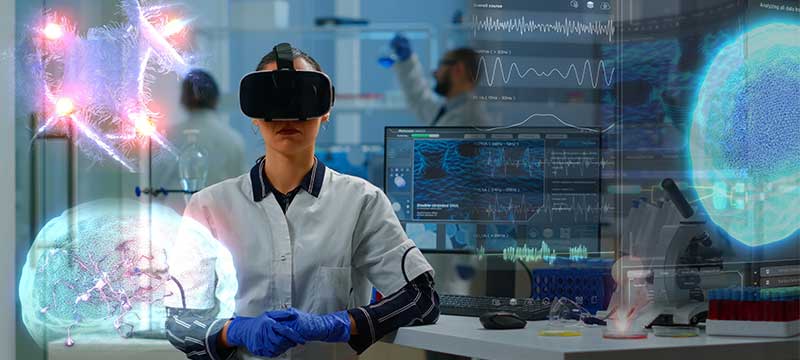
Revolutionizing Healthcare: Cloud Technology and Data Management
September 17, 2024

With the rise of cloud services and sophisticated data management systems, the healthcare sector has seen a dramatic upheaval. Healthcare providers are increasingly looking to the cloud in order to modernize their operations, increase the availability of patient data, and improve patient outcomes in response to rising demand for high-quality treatment.
The article will discuss how cloud computing has altered healthcare data management and how this shift might be revolutionary.
The Transition to Electronic Medical Records
The transition from paper to digital health records has been a revolutionary step for the healthcare industry. The advent of cloud computing has been instrumental in making this shift possible. Cloud-based Electronic Health Records (EHRs) improve diagnostic precision and treatment timeliness by giving doctors easy access to patient data.
The Availability and Portability of Data
As a result of the cloud's accessibility and interoperability, healthcare providers and organizations may easily exchange patient data with one another. The ability to swiftly and easily retrieve a patient's medical history is crucial in emergency circumstances. Care coordination across various medical professionals and institutions is facilitated by interoperability as well.
Cost-Effectiveness and Scalability
Cloud computing allows healthcare organizations to dynamically expand or contract their data storage and processing capacities. The vast quantities of data created in healthcare make this scalability very useful. Cloud solutions are affordable because they allow businesses to save money on infrastructure upfront and pay for just the resources they actually use.
Real-Time Analysis
Cloud computing allows for real-time data analyses, giving healthcare providers a competitive edge. Meaningful insights into patient patterns, treatment results, and organizational efficiency may be gained through real-time data analysis. This data-driven method underpins the practice of evidence-based medicine and the pursuit of ever-finer healthcare.
Remote Health Monitoring and Telemedicine
Telemedicine and remote monitoring in healthcare saw a surge in use during the COVID-19 pandemic. Virtual doctor visits, remote monitoring of vital signs, and data sharing between medical personnel and patients are all made possible by cloud computing.
Intelligent Machines and AI
With the use of cloud computing, healthcare organizations may more easily utilize AI and ML for effective data management. While ML models may help in spotting trends and abnormalities that could otherwise be missed by human specialists, AI algorithms can analyze patient data to create accurate predictions and aid in diagnosis.
Mobile Applications
A patient's ability to see their medical history, make appointments, and connect with their healthcare providers is greatly enhanced through cloud-based patient portals and mobile applications. Better health outcomes and a more patient-centric approach may be achieved when patients are given this amount of agency in their treatment.
Difficulties and Things to Think About
The cloud has significant opportunities in healthcare, but it also presents certain obstacles. The requirement for thorough backup and disaster recovery systems is among these. There is also the issue of data privacy to consider. Cloud service providers that healthcare organizations use must adhere to strict industry guidelines.
Conclusion
Improvements in patient care and streamlined processes are only two of the many ways that cloud computing and sophisticated data management systems are revolutionizing the healthcare sector. Cloud technology is assisting healthcare providers in meeting the rising expectations for high-quality and patient-centric care by increasing data accessibility, boosting real-time data analytics, and facilitating telemedicine and remote monitoring.
Due to the ever-changing nature of the healthcare industry, it is more important than ever that businesses give top priority to protecting patient data, staying in line with applicable regulations, and making responsible decisions with that data. The continued success of the digital revolution in healthcare relies on the careful implementation of cloud technologies, together with a dedication to data protection and security. Cloud computing has a bright future in the medical field.